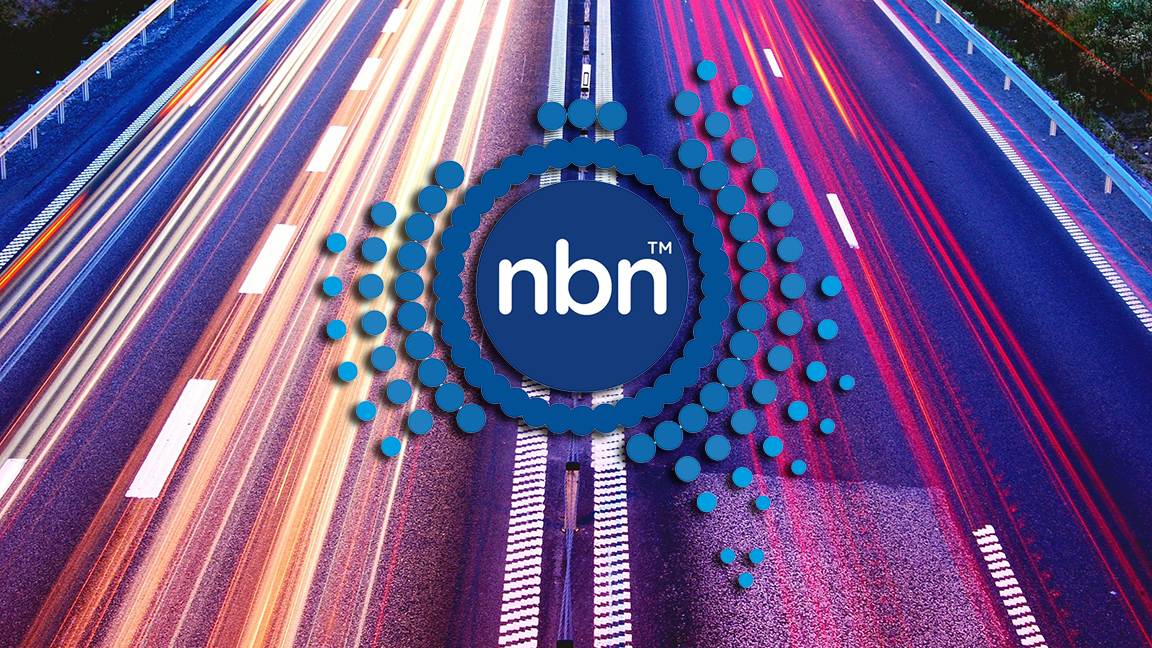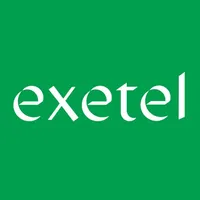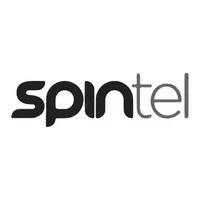NBN speed test: check your broadband speed here in seconds
Find out just how fast your internet connection really is

Sign up for breaking news, reviews, opinion, top tech deals, and more.
You are now subscribed
Your newsletter sign-up was successful
What good is it signing up to one of the best NBN plans if you don't achieve the download speed you're promised? While it's certainly true that internet service providers (ISPs) are likely to deliver on their promise (or even overdeliver is some instances) on the slower NBN 50 and NBN 100 plans, it's not always a guarantee that the fastest NBN plans will deliver on their promise, so it's always worth actually checking your home broadband speed.
On this page, you'll be able to test your speed, see what it means, and get the most out of your home connection.
To kick things off quickly, simply hit 'GO' below and the Speedtest.net tool (a site run by internet-speed authority Ookla) will run a diagnostic on your connection, spitting out both a download and upload speed, plus ping and jitter results. This can give you a quick overview of how your net is doing, but for more info on what these results mean, read on.
What to expect
If you want to test how your connection is operating, it’s probably a good idea to check out how it should be operating so you can compare.
When signing up for the NBN, you would have chosen a speed-tier from the options provided by your ISP – this will dictate the upper limit of both the download and upload speeds you’ll be able to hit, although that number isn’t indicative of the actual speed you will experience at all times.
NBN Co. now offers a wide range of speed tiers, with 25, 50, 100, 250 and 1000Mbps options for residential customers – which will soon be joined by NBN 2000 plans.
However, because the company is a wholesaler, it ends up being the decision of each ISP as to what speeds they will offer to their customers. Typically ISPs have plans that reflect most of those speed-tiers, but this won’t always be the case.
Sign up for breaking news, reviews, opinion, top tech deals, and more.
By law, your ISP has to advertise something referred to as a "typical evening speed", which is an average that's indicative of how fast your download rate should be going during the busy period of the day – when most people are at home and using streaming services.

Recommended fast NBN plans
Exetel | 100Mbps | AU$75p/m (first 6 months, then AU$95p/m)
Exetel's NBN 100 plan offers a Speed Boost feature which lets you bump your speed up to the NBN 250 tier for free, five times a month. However, this plan has recently increased in price by AU$10 p/m (both intro and ongoing) making it a little harder to recommend.
• AU$75 minimum cost
• AU$1,020 first year cost
• AU$1,140 ongoing yearly cost
• See more: Best NBN 100 plans
Spintel | 100Mbps | AU$65p/m (first 6 months, then AU$81.95p/m)
If you don't have an FTTP or HFC connection, or you're not fussed about download speeds beyond 100Mbps, then Spintel's plan is our top choice. It's one of the cheapest plans to offer this speed, especially during each ongoing year, where it's the only one to come in under AU$1,000. Sensational value.
• AU$65 minimum cost
• AU$881.70 first year cost
• AU$983.40 ongoing cost
Superloop | 250Mbps | AU$89p/m (first 6 months, then AU$104p/m)
Superloop has been a firm favourite of ours for some time. The telco also offers five free Speed Boost days each month meaning customers should be able to bump up the speed of their service to the NBN 1000 tier – right now, Superloop advertises 860Mbps typical evening speeds at this tier. However, like Exetel (it's sister company) Superloop has increased prices recently, making it slightly worse value in the process. We still rate the telco, but there are cheaper plans to be found.
• AU$85 minimum cost
• AU$1,104 first year cost
• AU$1,188 ongoing yearly cost
Flip | 900Mbps | AU$94p/m (first 4 months, then AU$104.90p/m)
Flip is our top choice if you want the fastest, promised download speeds right now, thanks to its 900Mbps claim. Not only is this the fastest speed we've seen in Australia, but this plan is also much cheaper than than many other providers. For a more affordable NBN 1000 plan, we now recommend Spintel.
• AU$94 minimum cost
• AU$1,215.20 first year cost
• AU$1,258.80 ongoing yearly cost
• See more: Best NBN 1000 plans
How do I test my internet
You've already run the test above by this point, we assume, but you should have another go to try and give your internet the best chance it’s got at achieving high speeds so you can accurately measure the signal arriving at your house.
Where possible, connect your computer or laptop directly to your modem or router with an Ethernet cable, and avoid running any downloads, streams or other data-heavy activities and programs while the test is in progress.
If you have to test your connection over Wi-Fi, such as with a laptop or smartphone, try and move as close as possible to your router to ensure you have a strong wireless signal, as a weak one can interfere with the internet speed testing, meaning you’ll see lower results than your ‘net connection is actually capable of.
Once you’ve set yourself up, it should just be a matter of hitting the ‘start test’ button and waiting for the test to run its course. Once completed, you’ll be given a download speed and upload speed, both measured in Mbps, as well as some more advanced diagnostics if you're so inclined.
We suggest running this test several times to ensure you’re getting consistent results each time. If the results are wildly erratic or vastly below the expected amount, try rebooting your modem and re-running the test.
Diagnosing the results
Don’t be alarmed if the download speed isn’t bang-on the number promised to you by your provider – it’s rare to get 100 percent of promised speed – however, it should be close if everything’s gone smoothly so far.
Certain factors will affect this speed, such as how many devices or active tasks are using the connection simultaneously, as well as the type of connection you have. Fibre to the node (FTTN) connections, for instance, will experience slower speeds the further away your premises are to the node itself; apparently distances above 400-500 metres will start seeing a decrease in real-world vs promised speeds.
If you’re experiencing significantly lower speeds than listed on your plan and have already tried all the aforementioned tricks, then you should contact your service provider to see what the issue is. They should be able to tell you how far away you are from the node if you’re on a FTTN connection, or if there are some specific problems in your area otherwise.
Need a better plan?
Still not happy with the results? Maybe it’s time to check out a higher-speed NBN plan, or switching to another provider entirely. Below, we've got a live-updated tracker to compare plans, but we've also got two dedicated pages to help you out, one for the fastest NBN plans available, and another that compares the best value NBN plans on offer.
NBN 250 plans
NBN 1000 plans
NBN speed tiers explained
Currently, NBN Co offers seven broadband speed tiers, known as NBN 12, NBN 25, NBN 50, two NBN 100s (we'll explain that shortly), NBN 250 and NBN 1000.
However, it’s up to individual internet service providers (ISPs) what speed tiers they offer their customers. Most of the bigger players offer only NBN 25 to NBN 1000.
The numbers in the names of each speed tier roughly represent the maximum download speed you should get, starting with 12Mbps at the bottom, through to a top speed of 1,000Mbps – and the cost of each one gets progressively higher as you go up the ladder.
NBN 25
If you’ve got a family with kids, where the internet will be used more intensively during certain times of the day, then the best NBN 25 plans could work for you.
As you might expect, these plans provide a maximum download speed of 25Mbps and a maximum upload speed of 5Mbps – but, again, speeds vary due to several factors including peak-time congestion. The current average monthly cost of an NBN 25 plan is just over AU$70 p/m, with plans starting from AU$39 p/m as part of an introductory offer.
NBN 25 should support at least on 4K Netflix or Stan stream and should easily support a couple of streaming devices being used simultaneously, although you could still be fighting over bandwidth, depending on how populous your household is.
NBN 50
With a maximum download speed of 50Mbps and an upload speed of 20Mbps, the best NBN 50 plans are more than enough to meet most households’ entertainment, gaming and regular surfing needs.
It will keep the family constantly connected with plenty of bandwidth to ensure everyone can do their own thing without impinging on any other family member. It's also the speed we'd recommend if you've got several smart home devices working on a single Wi-Fi network.
Of course, this luxury comes at a higher cost than the previous tier; plans start at about AU$60 a month and cost an average of AU$85 p/m.
NBN 100
The fastest speed available for all connection types, the best NBN 100 plans are perhaps the best option for the modern internet user.
There are two NBN 100 plans available – one that has a maximum upload speed of 20Mbps, and another that offers a better upload speed of 40Mbps. But no matter which 'sub' option you choose, your download speeds will be capped at 100Mbps – more than enough for all your gaming, 4K streaming, working from home, multiple connected smart devices and everything else you'd like to throw at it.
There'll be plenty of bandwidth to keep everyone happy, and then some. Pricing for the NBN 100 plans has been steadily increasing in recent months and years, with the average monthly cost now sitting at around AU$93.
NBN 250 and NBN 1000
Why stop at 100Mbps when you can get even faster broadband? There are the options to take your maximum download speeds to 250Mbps or even a mega 1,000Mbps.
There was a time that these two tiers were rare to find in Australia, but that's no longer the case. If you have the right connection type at home – fibre to the premises (FTTP) or hybrid fibre coaxial (HFC) – then you can take full advantage of the blisteringly-fast speeds.
Don't have the connection type but want in on quicker internet? You're likely eligible for NBN Co's free fibre upgrade program to get you connected.
- These are the best fast NBN plans, picked by our expert team.

Max is a senior staff writer for TechRadar who covers home entertainment and audio first, NBN second and virtually anything else that falls under the consumer electronics umbrella third. He's also a bit of an ecommerce fiend, particularly when it comes to finding the latest coupon codes for a variety of publications. He has written for TechRadar's sister publication What Hi-Fi? as well as Pocket-lint, and he's also the editor of Australian Hi-Fi and Audio Esoterica magazines. Max also dabbled in the men's lifestyle publication space, but is now firmly rooted in his first passion of technology.
You must confirm your public display name before commenting
Please logout and then login again, you will then be prompted to enter your display name.



